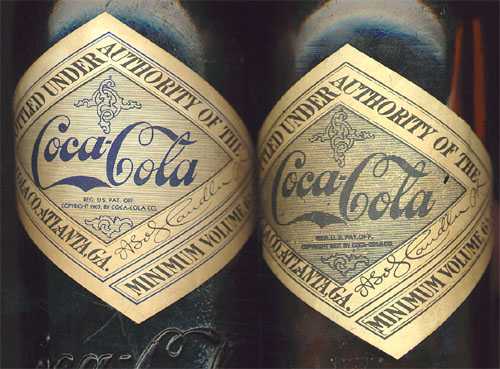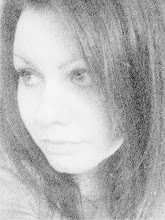
First off, I'd like to add a disclaimer - I might have misunderstood Michel Foucault completely to make it suit my own ideas better. Live with it. Secondly I'd like it noted that a blog isn't a paper, it's simply a rest from my academic life where I can freely associate my own mind with things I've read. Now. Let's get started (watch this post not being as long as I had intended it to be...)
Basically, things aren't anything until we label them and how we choose to label might have dire consequenses. Take mental illness as an example. What is a mental illness? Personally I'd like to say it's something that makes a person unable to participate in, and be satisfied with the society we live in. It's fairly general. We can all see the lalaing fool punching at imaginary elephants as being mentally ill. But what if we take a bigger perspective, if we were to take Sokrates out of his time and put him in modern day Göteborg for instance, would he be able to function? I doubt it. Does it prove that Sokrates was mentally ill? No it doesn't. Is a woman mentally ill for wanting to live a life without men? Is homosexuality a disease? It all seems to depend on context.
Mental unhealth is also a product of the time, place and ideas we live in and with. There are no bulletproof waters here. In my opinion it also has a lot to do with values. A sick person has just as much value as a healthy one simply for being human. Though we're limited, no matter how open and understanding we'd like to be we can't absorb everything and be accepting and happy with it. It seems to be a human need to seperate people into two groups - we and them.
Which group we see ourselves as belonging to differs from time to time and even from situation to sitauation. It's all in the comparison. With that I come to the conclusion that there is no truth. There is no independent yardstick which we can use to measure life with. People consist of life, without that we're just matter similar to a plant. In comparison I can be old, young, big, small, happy, miserable, tall, short, intelligent, stupid, charming or a downer. So, which adjectives are actually me? The labels I claim for myself and use in my mind when I picture a "me"? Still that'd take a fair amount of confidence. There's only one of me telling myself something while as the world is full of other people that might be telling me I'm something else. This raises a whole other series of ideas and questions.
But if we are to stick for the labeling for a while, let's assume that in the beginning of time where didn't have contact in the manner we do now and we lived in isolated villages or tribes or whatever the window of what's normal could have gone two different ways, either everything was normal or nothing was normal. In connection to the previous idea of comparison it seems to me that city people think that small villages are accepting because everyone knows each other while as villagers seem to think that they can be accepted in a city because of the bigger diversity. Perhaps there's no real getting around the aspect of comparison after all, even if I'd like to leave that to the side. So, what I'd like to know is if there was a way of feeling normal, did they set the standard for normal by who they cared for? Was the king's son normal because he was the next in line for the throne even though he was that lalaing fool?
Which authorites do we have in what a good person is? Religion perhaps. But what if one bishop had a different idea than the one in the area next to his? Would he have labeled all other people but his "bad" just because he could? It seems difficult to reclaim a sense of being an acceptable person if you fall into a category which traditionally is seen as bad.
Another thing, this whole tradition bit. It can't be the absolute truth, after all. Society consists of people and it must have come with someone. A charming loudmouth more than likely. Seems the louder and more convincingly someone speaks the more followers succumb to the teachings. They don't even have to be rational and satisfying, a loud voice seems to keep the voice of reason quiet in all of us.
Foucault does the same with sex. Our modern idea of sex is something than the act itself. I read something by his about it a while ago. I wish I could remember exactly how it went. But the way I remember it now when it's been scrambled about my head along with my own understandings for a while is that gender is a construction of history, not a given fact. Of course I agree with that. Just look at the formation of the middle class. Given tasks for everyone, a wife to be a mother and the caregiver for a household, not necessarily a person. She was there to please her husband and make people out of their offspring.
More information isn't always the answer to a bigger understanding. Sometimes the understanding alone should be enough. When you get that sting in your gut and you feel like you're about to say something stupid and stereotypical you should probably listen to it. There is no truth in genders either, just tradition, and like I said before it's made by us. We're really the only ones that can change it by not using expressions like "It's always been like that" or "It's supposed to be like that". What is, has been and will be is under constant reevaluation.
Let's use Christmas for an example. It might seem that we have a set way of doing it, but it really evolves, constantly. Although we eat particular christmasfood, preform certain rituals, such as giftgiving or seeing relatives it's never quite the same. We can't recreate a certain event at a different point in time. It's impossible! Christmas in Sweden in the 21st century is different from Christmas in Sweden in the 19th century even though not that many generations have passed Every little shift creates a different outcome, similar to a branch which grows in different directions.
With this being said, we should use utter care when we label something, even though we might need them to make sense of the world and to remember who our true friends and values are we can't be stale and unwilling to change our minds.
Time changes and time changes us



0 comments:
Post a Comment